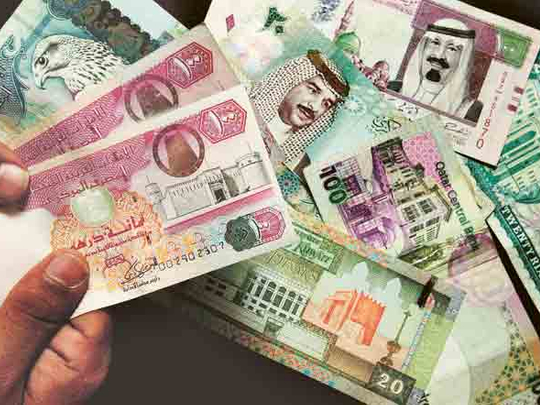
Dubai: The dirham's peg to the dollar will continue to serve the UAE economy well in terms of foreign investment inflows and other benefits, Dubai Economic Council Chairman Juma Al Majid said on Tuesday.
He also suggested that it is not yet the "right time or environment" to go ahead with a single currency for the six Gulf Cooperation Council countries.
One of the main factors responsible for making Dubai a hub for international investment, which led to the economic boom, is the dirham's peg to the US dollar, Al Majid said.
"The decision to peg to the dollar was very useful to the UAE economy, as it helped foreign capital flow into the UAE and encouraged investors to set up business here.
"The dollar is the most dominant currency and a majority of countries will keep their pegs to the currency. Those who talk about de-pegging the dirham from the dollar have no experience in the market."
Al Majid was speaking during the launch of a book entitled Currency Union and Exchange Rate Issues: Lessons for the Gulf States.
The book was written by a number of prominent economic experts and jointly edited by professor Dr Abdul Razak Al Faris, Chief Economist of DEC, and Dr Roland McDonald, professor of economics, University of Glasgow, Scotland.
Citing the experience of Kuwait when it cut its currency loose from the US dollar, preferring to float the dinar against a basket of currencies, Al Majid said: "Only 20 per cent of the dinar has been floated against a basket of currencies."
Regarding GCC monetary union, Al Majid said that Dubai Economic Council research has shown it is too early to have a unified Gulf currency.
"We are not ready for GCC monetary union. It is not the right time and right environment to go ahead with the single currency."
Oman was the first country to step out of the monetary union, followed by the UAE.
Before achieving such a union, Al Majid said, a series of rules and regulations must be in place.
Factors to consider
"A number of trade and industrial laws should be modified, banking sector modification should be conducted, special agreements across the GCC should be approved and the skies and borders should be fully open," he said.
Al Faris added: "A single currency is important in order to unify the GCC countries and bring them together under similar standards, regulations and environment. A single currency can bring discipline and coordination among the countries. However, it is not achievable in two or three years.
"We have to reconsider the conversion criteria, interest rates, public debt, inflation rates and so on before going further with monetary union."
The GCC should start with coordinating standards and policies and disseminating detailed and accurate data, Al Faris added.












